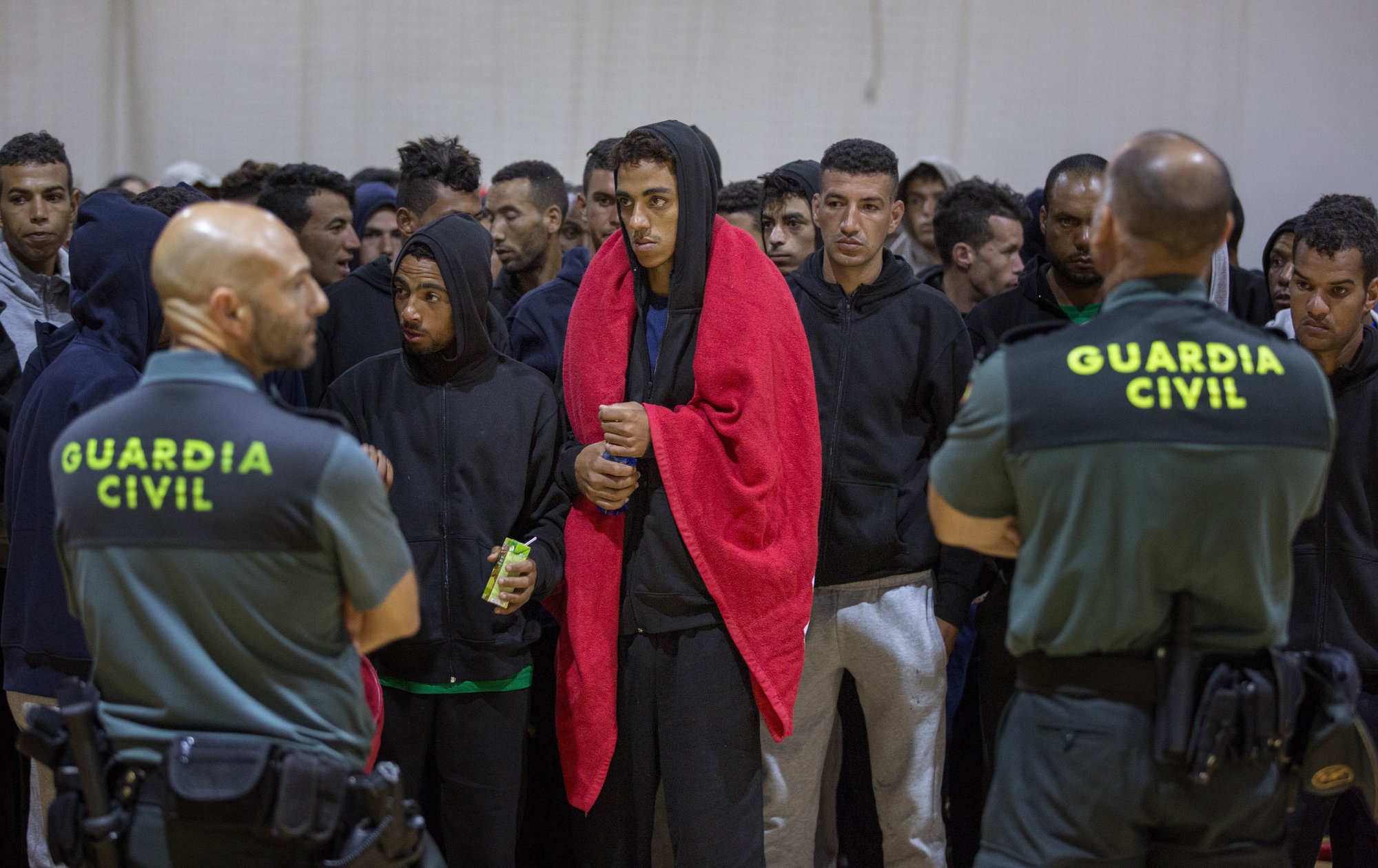
Migrant arrivals plunge in Spain after deals with Morocco
Spain appears to have stemmed a surge in illegal migration that made it Europe’s main entry point for sea arrivals, after boosting joint efforts with neighboring Morocco to clamp down on the flow.

Spain saw nearly 60,000 people reach its shores irregularly in 2018, most from Morocco and West Africa, but sea arrivals plummeted in February and since then have remained at the lowest level in two years, Spanish statistics show.
While the migrant flow often fluctuates due to weather and other factors, an internal European Union report obtained by The Associated Press suggests that intensified efforts to stop the migrants before they’re able to reach European waters are paying off.
“In the last four months, the increased cooperation between Spanish and Moroccan authorities has significantly contributed to decrease the illegal migratory flows towards Spain,” says the report, which was distributed to member nations in March.
The report doesn’t specify what Morocco did to hold back migrants or what it got in return other than “explicit recognition and support” from the Spanish government and the EU’s executive Commission in Brussels.
Human rights experts, however, warn that outsourcing Europe’s border control to North African countries creates a risk of human right violations. Amnesty International last year denounced a Moroccan crackdown on sub-Saharan migrants, including alleged mass roundups and expulsions without due process.
Alarm Phone, activists behind a hotline for migrants in distress at sea, said it believed arrivals are down “due to repressive campaigns in Morocco and political developments in Spain that affect search and rescue operations” in waters around the narrow Strait of Gibraltar that separates the two countries.
The EU office dealing with relations with neighboring countries declined to comment on the migration report but noted that the bloc has spent 232 million euros ($262 million) on migration-related projects with Morocco since 2014, mostly in border control and fighting smugglers. That includes a 140 million-euro border management package approved late last year.
The EU also gave 36 million euros in emergency assistance to Spain, EU Migration Commissioner Dimitris Avramopoulos said in March.
In an election debate this week, Spanish Prime Minister Pedro Sánchez stressed the need to reinforce cooperation with countries of origin and transit on the migrant trail to Europe.
“It is what the government of Spain is doing with Morocco and with sub-Saharan countries,” he said.
In contrast with Italy’s hard line on migrants, Sánchez’s center-left government initially adopted a welcoming attitude, even granting safe harbor last June to a humanitarian rescue ship that was refused by Italy and Malta.






